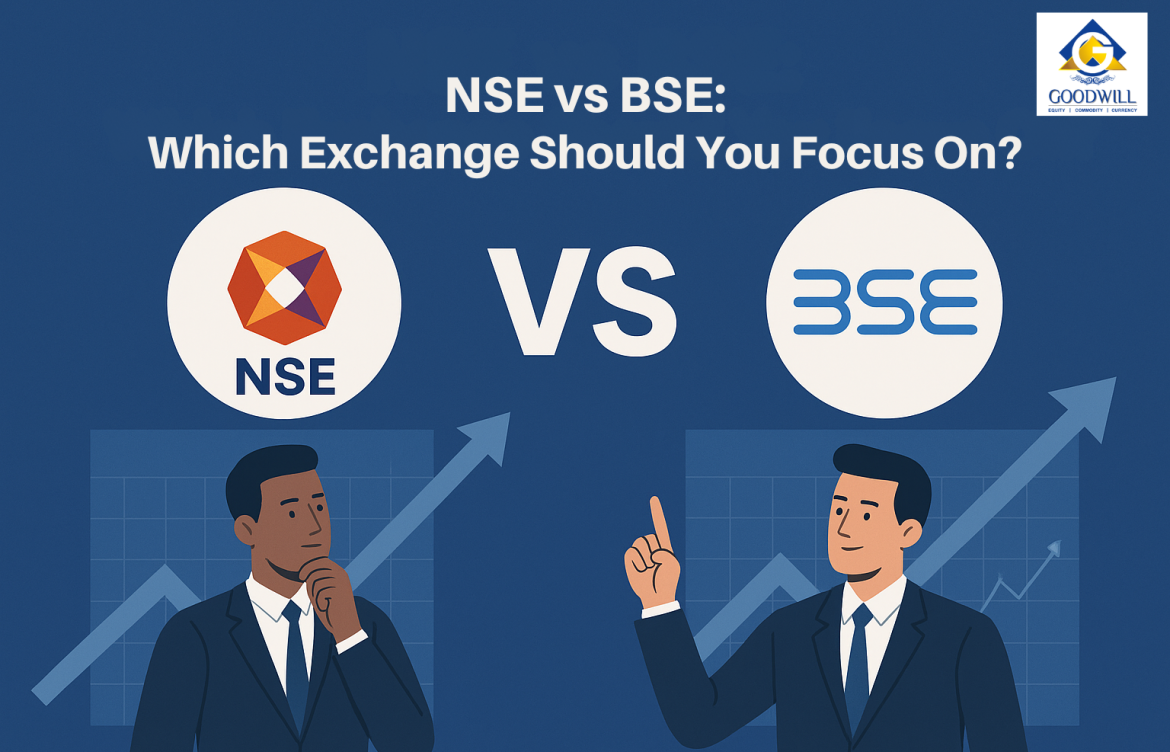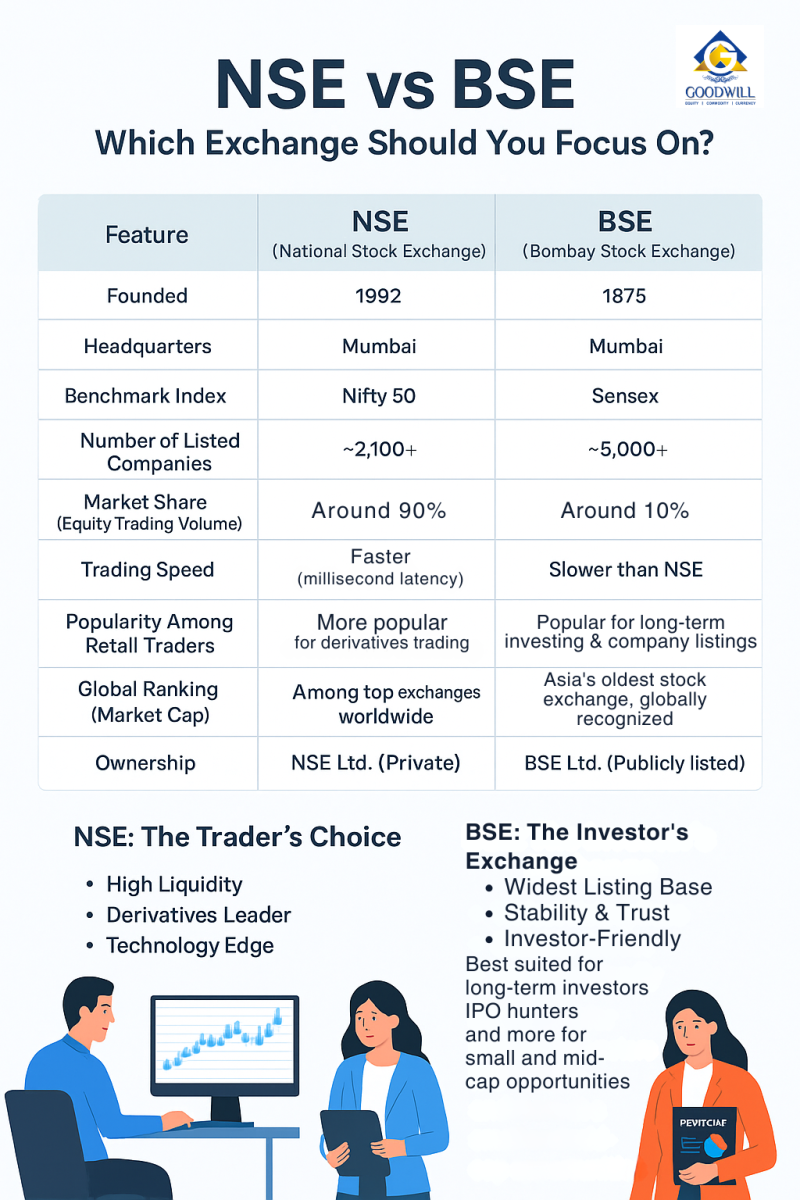
NSE vs BSE: Which Exchange Should You Focus On?
NSE vs BSE: Difference between them
When it comes to stock trading in India, two names dominate the conversation: NSE (National Stock Exchange) and BSE (Bombay Stock Exchange).
Both play a crucial role in shaping India’s financial markets, but many investors—especially beginners—often ask: Which one should I focus on?
In this article, we’ll break down the key differences, advantages, and use cases of each exchange to help you make an informed choice.
A Quick Snapshot of NSE & BSE
NSE: The Trader’s Choice
The National Stock Exchange (NSE) is the go-to platform for most active traders in India. Its flagship index, Nifty 50, represents 50 of the largest and most liquid Indian companies across 14 sectors.
Key Advantages of NSE
-
High Liquidity: Over 80% of cash market volumes are routed through NSE.
-
Derivatives Leader: NSE dominates futures and options (F&O) trading.
-
Technology Edge: Known for faster order execution, appealing to intraday and algorithmic traders.
-
Transparency: Order-driven system ensures fair price discovery.
👉 Best suited for: Active traders, intraday players, and those focusing on derivatives trading.

BSE: The Investor’s Exchange
The Bombay Stock Exchange (BSE) is Asia’s oldest stock exchange and a prestigious listing platform for companies. Its iconic benchmark, the Sensex, is often used as a barometer for India’s economic growth.
Key Advantages of BSE
-
Widest Listing Base: With over 5,000 companies, BSE has the highest number of listings in India.
-
Stability & Trust: Long history of credibility and reliability since 1875.
-
Investor-Friendly: Often preferred by long-term investors.
-
SME Platform: Provides a strong platform for small and medium enterprises.
👉 Best suited for: Long-term investors, IPO hunters, and those looking at small and mid-cap opportunities.
NSE vs BSE: Which Should You Choose?
-
If you’re an active trader, particularly in derivatives (F&O), NSE is your natural choice.
-
If you’re an investor seeking exposure to diverse company listings or interested in IPOs, BSE offers broader opportunities.
-
Many investors actually use both exchanges depending on their goals.
Final Thoughts
Both NSE and BSE have carved their niches in India’s stock market. Instead of focusing on which is better, align your choice with your investment style:
-
Choose NSE if you’re trading actively in equities and derivatives.
-
Choose BSE if you want long-term investment opportunities and exposure to IPOs.
In reality, many smart investors leverage both exchanges for maximum benefit.


